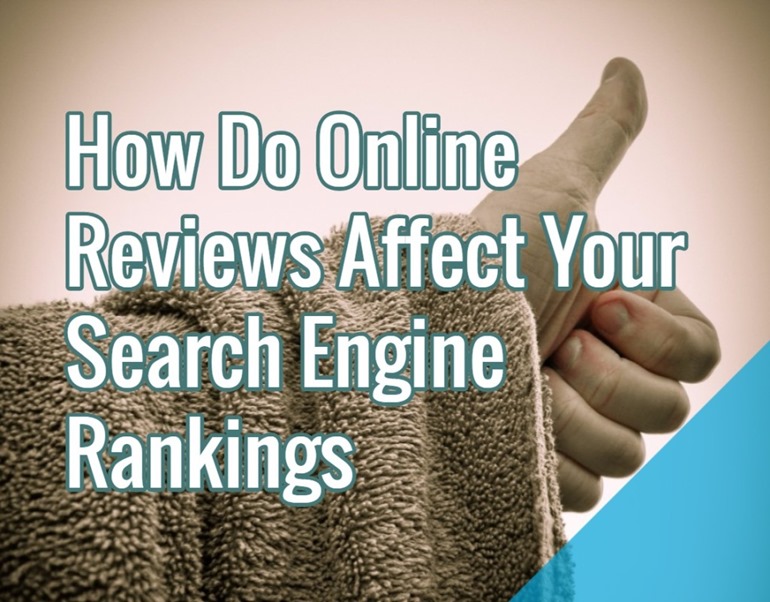Online reputation management (ORM) – the process of monitoring and influencing your reputation online – can be an important element of search engine optimisation . When it comes to ensuring your brand ranks highly in online search results, Google and other search engines love to see that a website has a good reputation.
And most consumers research online and read customer reviews of products or services before committing to buy, so online reviews have a big impact on their buying decisions.
Research shows that there is a close link between great customer services and brand loyalty, and just one bad customer experience is enough to make a customer shop elsewhere. A study sponsored by Zendesk and undertaken by Dimensional Research reveals that 62% of B2B customers and 42% of B2C customers spent more following a good experience , while 62% and 52% respectively shopped elsewhere following a negative customer experience. Furthermore, 95% of respondents who had a bad customer experience shared it with others compared with 87’% who shared a good experience.
We’re living in the digital age, and the internet enables unhappy customers to instantly publish their complaints online. If you’re wondering how reviews affect your company’s search engine ranking (and your business as a whole), research by Moz ascertained that 67% of consumers are influenced by online reviews, while Dimension Research puts the figure as high as 88%!
The online review has become the most effective, trusted method for consumers to check out companies and products before purchase. Online reviews have such a powerful impact on purchasing behaviour, so let’s take a look at what this means for business owners.
Reviews Impact Rankings
If people trust a company or brand, they are more likely to pass on their details, make a purchase, and revisit a website. Increased levels of trust therefore equals a higher conversion rate (and conversion rate itself could be a factor search engines use when ranking websites).
The more people buy, the more people recommend, the more online Word Of Mouth results in links and traffic to your site — which can only help confirm to Google that your site is a good match.
Google names review count and score as a ranking factor for local business search:
Google review count and score are also factored into local search ranking – more reviews and positive ratings will improve a business’s local ranking.
Interactions And Engagement Impact Rankings
In addition to the effect that reviews have on your conversion rate, the total number of reviews also has a direct impact on your rankings. The more review sites that feature your company, the more backlinks your website attracts.
Spending time responding to reviews and communicating with customers increases engagement and brand mentions, resulting in a positive impact on your search engine rankings. (How to Deal With Negative Reviews)
Review Sites
With so many review sites online, registering on (and maintaining) all of them would be a full time job. Time-poor business owners may wish to choose the review sites that are most relevant for their business. Let’s take a look at which would be the most useful for you.
- AMAZON – With so many similar products from different sellers on Amazon, you need to stand out from the crowd. Shiny gold stars and great customer reviews are the key to doing this. Amazon operates a five-star rating scale governed by the percentage of reviews per star, followed by most helpful and most recent customer reviews.
- GOOGLE MY BUSINESS – These are the reviews that show on the right hand side of Google’s search results. Google’s Pigeon algorithm update uses location and distance ranking criteria to improve local search results. You should ensure that your website is correctly optimized for search with verified accounts on local directories, most importantly Google My Business. A verified local Google+ page enables you to respond to reviews. While reviews, comments, images, etc. boost your search rankings. The bonus is that the Google Maps app uses the information and reviews, so the more content, the more reputable your business will appear.
- YELP – This is a free review site where consumers rate businesses on a five star scale. Businesses and consumers (Yelpers) register free of charge on this platform that allows businesses to respond to comments from consumers.
- WHICH? – Which? Is an independent consumer review organisation that tests products in order to review and describe them. The reviews are written by the Which? Team (rather than consumers) and Which? undertakes consumer surveys on the best and worst products and services.
- YAHOO LOCAL LISTINGS – This is similar to Google My Business and enables users to post reviews of businesses using a five-star rating system.
- FACEBOOK RATINGS AND REVIEWS – You can find this on the left-hand sidebar on your Facebook Page. Any Facebook user can post a rating or review (making it visible to their friends), which the Page owner cannot remove or edit.
- TWITTER – Although users may not search Twitter specifically for reviews (unless you encourage them to do so by posting a review hashtag), tweets are now indexed in search results. This means that positive and negative comments or mentions could appear in search engine result pages (SERPs) when somebody searches for reviews of your business. Use this to your advantage by “favouriting” positive Tweets so that they are easy to find in future and use them in your marketing campaigns. HubSpot recently tested this process by attaching three tweets that gave positive reviews on an e-book they were promoting. The CTA (call to action) with tweets converted more effectively than the CTA without tweets.
- YOUR WEBSITE – B2C product or service reviews help increase conversions, particularly when used at strategic points in the buying process. So hosting a review section on your website makes perfect business sense. Research shows that a great product review posted next to the “Buy Now” CTA button can help to bypass the final “Should I buy this?” hurdle.
When it comes to B2B clients, testimonials and case studies are an effective method of demonstrating your expertise in a particular sector, providing potential new clients with confidence in your ability to deliver the kind of project they are seeking and a person (or company) they can call for a reference.
If you host a review section on your website, use schema so that Google can read, understand and use the content easily.
Obviously, some review sites have more impact than others. For instance although Google+ reviews undoubtedly has the most clout for Google SERPs, Facebook reviews are more easily shared to a wider audience.
Conclusion
Business and website owners should have an ongoing Review Acquisition Strategy in order to generate reviews. You’ll need to set aside regular time to respond to comments (both positive and negative) so that your customers feel that they have a voice and are being listened to – a great way of building brand loyalty.
Hand-Picked Related Articles:
- Even 1 Star Reviews Result In Twice The Conversions
- 12 Statistics On Consumer Reviews
- How to Encourage User Reviews: Tips for Small Business
* Adapted lead image: ![]()
![]() Some rights reserved by kreg.steppe
Some rights reserved by kreg.steppe
Online reputation management (ORM) – the process of monitoring and influencing your reputation online – can be an important element of search engine optimisation . When it comes to ensuring your brand ranks highly in online search results, Google and […]
Post from: Search Engine People SEO Blog
How Do Online Reviews Affect Your Search Engine Rankings
—
Written by Jonny Ross, jonnyross.com
The post How Do Online Reviews Affect Your Search Engine Rankings appeared first on Search Engine People Blog.
Search Engine People Blog(85)







